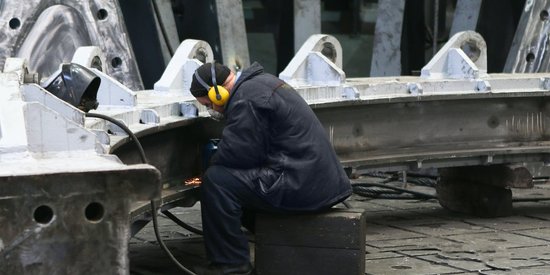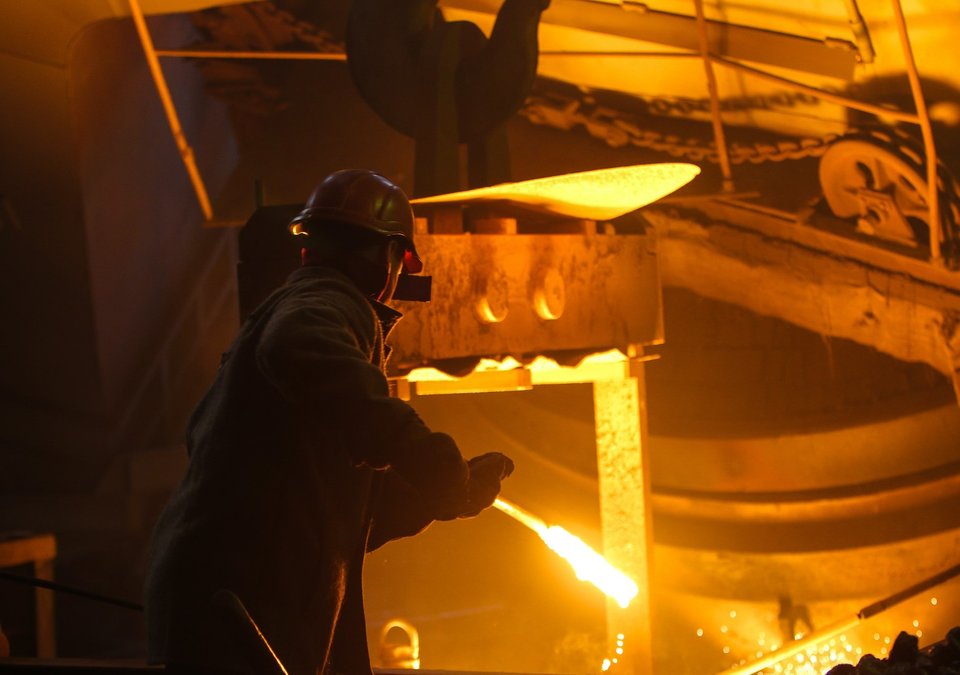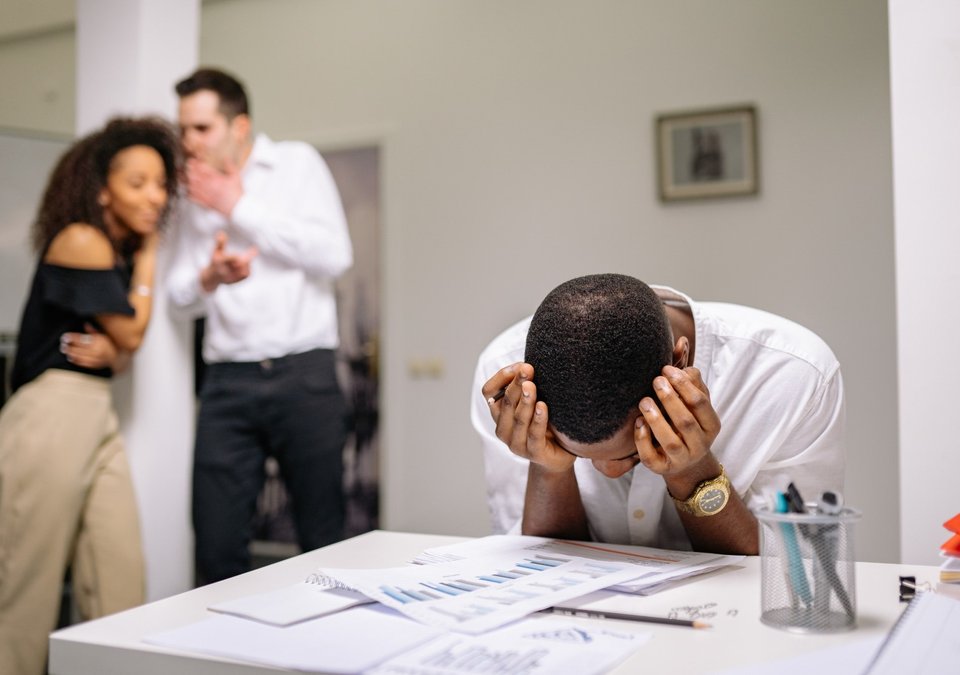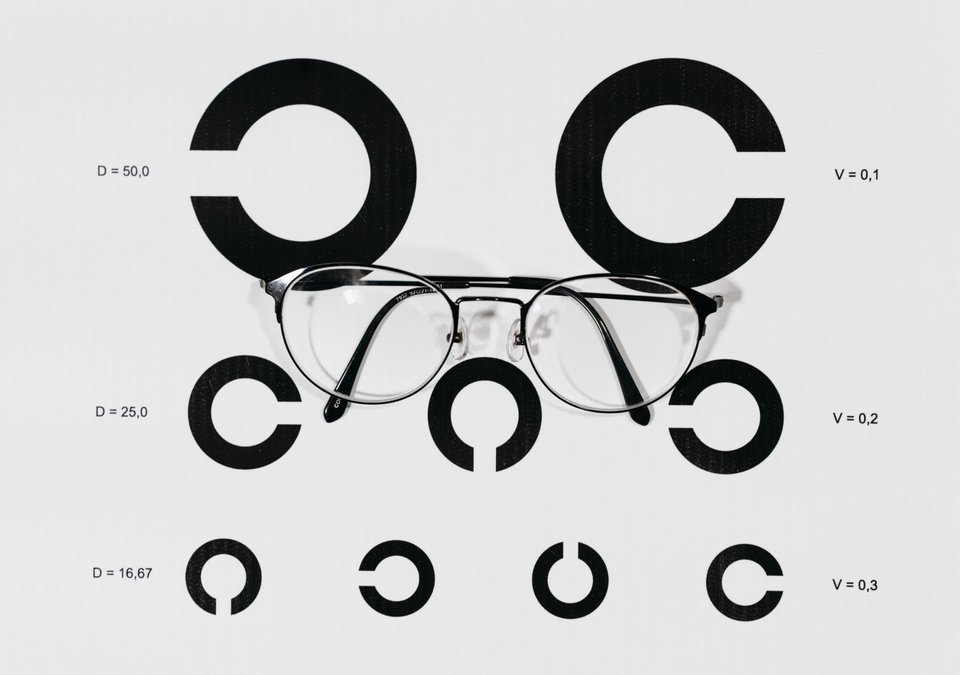
Accident at work brought on disabling disease
We recently settled a claim following an accident at work which resulted in our client being diagnosed with Dupuytren’s contracture.
UK Law states that employers have a legal obligation and a set of rules to follow to ensure that the safety and welfare of their staff are kept at a maximum. This consists of ensuring that all members of staff are trained appropriately, dressed appropriately, given the correct equipment and that health and safety regulations are continually assessed and acted upon. Risk assessments must be continually undertaken to ensure no dangers occur in the ever-changing workplace.

If you have suffered an injury that wasn't your fault, the compensation process may seem very confusing. You may also be unsure if you have a viable claim. We can provide answers to any questions you may have.
From minor injuries to those which are life-changing, we are on hand to assess your individual circumstances and guide you through the whole process every step of the way.
Call: 01429 225200If you have received a burn or scald at work, contact our team as soon as you are able. We will quickly establish whether you have a work injury compensation claim and provide you with all the information and advice you need to move forward.
Burns and Scalds

If you work with hazardous or toxic substances and you have found yourself injured, suffering from health problems or you have been diagnosed with a terminal illness as a result of your employer's neglect, you are entitled to make a claim for compensation.
Hazardous SubstancesYour employer is responsible for ensuring your safety at work. If they have not taken appropriate action to do so, they may be found to have acted negligently and so be responsible for your injury.
If your employer has failed to protect you, resulting in an assault or attack, then you may be able to make a claim for compensation against your employer’s insurance policy.
Assault At Work

An employer is under a duty to ensure that you are safe whilst you are at work. They must carry out appropriate risk assessments and take the necessary precautions to avoid a fall occurring, particularly when the only way the work can be performed is from a height.
Falling from a height and being hit by falling objects tops the list when it comes to the causes of the most common workplace accidents in the UK.
Falling From HeightIf you have been injured in an accident at work, you may be entitled to claim for personal injury compensation. This can include partial or total deafness or blindness.
It is an employer's duty to try and eradicate the risk of an accident at the source before resorting to personal protective equipment (PPE). But PPE should only be supplied by the employer as a last resort.
Sight Or Hearing

If you are successful in your claim, you will be awarded damages for your pain, suffering and loss of amenity which will be assessed and based upon the medical evidence that is obtained in your case. You can also claim special damages, and these are based upon your out-of-pocket expenses.
We have a long history of helping people to get the help they need and compensation they deserve.
To find out more about how Tilly Bailey & Irvine Law Firm can advise you on your Accidents at Work Claims compensation claim, please talk to one of our solicitors.
Call: 01429 225200The amount you can claim for an accident at work depends on various factors such as the severity of your injuries, the impact on your life, and the circumstances surrounding the accident. Compensation is typically assessed based on these factors and can vary case by case.
In most cases, compensation for an accident at work is paid by the employer's liability insurance. Employers are legally required to have this insurance to cover the costs of compensation claims made by employees who are injured or become ill due to work-related incidents.
Generally, work injury compensation is not subject to income tax or National Insurance contributions in the UK. This includes compensation received for personal injury or illness resulting from an accident at work.
However, if your compensation includes elements such as loss of earnings or interest, these may be taxable. A member of our team will be able to work closely with you to provide an accurate answer.
Typically, work accident or illness claims are funded through a 'no win, no fee' arrangement, also known as a conditional fee agreement (CFA). Under this arrangement, you only pay legal fees if your claim is successful. If your claim is unsuccessful, you are not liable for legal fees, although you may still be responsible for other costs, such as court fees or expert witness fees.
Yes, you can make a 'no win, no fee' claim for an accident at work. As mentioned above, this is the most common arrangement for personal injury claims, including those related to accidents in the workplace.
It allows you to pursue compensation without the financial risk of paying legal fees upfront, as fees are typically only payable if your claim is successful. A member of our team will be able to speak to you about the accident you’ve had, the claim, and advise on how best to proceed.
After an accident at work, an employer should take several steps to ensure the safety and well-being of their employees and comply with legal obligations. These steps typically include:
1. Ensure Immediate Medical Attention: The employer should promptly arrange for any necessary medical assistance for the injured employee. This may involve calling emergency services or providing transportation to a medical facility.
2. Report the Accident: The accident should be reported to the appropriate authorities as required by law. This often includes filing a report with the Health and Safety Executive (HSE) or another relevant regulatory body.
3. Investigate the Accident: The employer should conduct a thorough investigation to determine the cause of the accident and identify any contributing factors. This may involve interviewing witnesses, examining the scene of the accident, and reviewing relevant documentation.
4. Implement Corrective Measures: Based on the findings of the investigation, the employer should take steps to address any hazards or deficiencies identified to prevent similar accidents from occurring in the future. This may include implementing new safety procedures, providing additional training, or repairing equipment.
5. Provide Support to the Injured Employee: The employer should offer support to the injured employee, including assistance with accessing medical care, arranging for time off work if necessary, and providing information about their rights to compensation or other benefits.
6. Review Policies and Procedures: The employer should review their health and safety policies and procedures to determine if any changes are needed to prevent similar accidents in the future. This may involve consulting with employees, safety representatives, or other relevant stakeholders.
7. Maintain Records: The employer should keep detailed records of the accident, including any injuries sustained, medical treatment provided, and steps taken to investigate and address the incident. These records may be required for legal or regulatory purposes.
Yes, in most cases, if you have an accident at work and are unable to work due to your injuries, your employer is legally required to pay you statutory sick pay (SSP) or any contractual sick pay that you are entitled to. SSP is paid by your employer for up to 28 weeks if you're too unwell to work, and it's paid at a set rate.
However, the specific terms of sick pay, including the amount and duration, may vary depending on your employment contract and company policies. It's important to review your employment contract or speak with your employer's HR department to understand your entitlements in case of an accident at work.
Yes, individuals working on zero-hour contracts are still entitled to claim for an accident at work if they suffer injuries due to negligence or unsafe conditions. Employers have a legal duty of care towards all employees, regardless of their contract type.
Yes, self-employed contractors can claim for an accident at work if the accident was caused by the negligence of another party, such as the employer or another contractor on site. However, the process and eligibility criteria may differ from those for employees, and it's advisable to seek legal advice in such cases.
The Health and Safety Executive (HSE) investigates workplace accidents or occupational illnesses when they are reportable under the Reporting of Injuries, Diseases and Dangerous Occurrences Regulations (RIDDOR). This typically includes incidents resulting in death, serious injury, or specific work-related illnesses.
The duration of an injury at work claim can vary depending on various factors, including the complexity of the case, the severity of the injuries, and whether liability is disputed.
Generally, straightforward claims may be resolved within months, while more complex cases may take longer, potentially extending to years. A member of our team will be able to advise on how long we would expect your claim to take, based on similar kinds of claims, and from our past experiences, and the specifics of your claim.
It is illegal for an employer to dismiss an employee solely because they have had an accident at work or have made a claim for compensation. Such actions would likely constitute unfair dismissal, and employees have legal rights to challenge such decisions through employment tribunals.
The most common workplace accidents and injuries include:
1. Slips, trips, and falls: These accidents can occur due to wet or uneven surfaces, inadequate lighting, or obstacles in walkways.
2. Manual handling accidents: Injuries from lifting, carrying, pushing, or pulling heavy objects improperly can lead to strains, sprains, or more serious musculoskeletal injuries.
3. Injuries from falling objects: Objects falling from heights, such as tools or materials, can cause head injuries, fractures, or other serious harm.
4. Machinery accidents: Accidents involving machinery or equipment can result in crush injuries, amputations, or severe cuts and lacerations.
5. Repetitive strain injuries (RSI): Conditions like carpal tunnel syndrome or tendonitis can develop over time due to repetitive motions or awkward postures.
6. Accidents involving vehicles or work-related travel: Transportation accidents, whether on-site or off-site, can lead to injuries such as whiplash, fractures, or head injuries.
You can typically claim for a wide range of workplace accidents, including slips, trips, and falls; injuries from machinery or equipment; manual handling accidents; falls from heights; accidents involving vehicles; and injuries caused by falling objects, among others.
If the accident was caused by negligence or unsafe conditions in the workplace, you may be eligible to claim compensation for your injuries and any associated losses.
Yes, you can claim for occupational illness or disease if you can demonstrate that it was caused by your work activities or working environment. Common examples include conditions like occupational asthma, dermatitis, hearing loss due to prolonged exposure to loud noise, and repetitive strain injuries (RSI).
To make a successful claim, you'll need to provide medical evidence linking your illness or disease to your work, and it's advisable to seek legal advice to understand your rights and options.
Here are the main steps involved in the process of a workplace accident claim:
1. Initial Consultation: You consult with a solicitor specialising in personal injury claims to discuss the details of your accident and injuries. They assess the merits of your case and explain the legal process involved.
2. Gathering Evidence: Your solicitor helps gather evidence to support your claim. This may include witness statements, accident reports, medical records, and any other relevant documentation.
3. Notification to Employer: Your solicitor notifies your employer or their insurance company of your intention to make a claim. This often initiates negotiations between the parties involved.
4. Medical Assessment: You undergo a medical assessment arranged by your solicitor to evaluate the extent of your injuries and their impact on your life. This assessment provides essential evidence for your claim.
5. Negotiation: Your solicitor negotiates with the other party, typically the employer's insurance company, to reach a fair settlement. This may involve multiple rounds of negotiation to agree on compensation for your injuries and losses.
6. Settlement or Litigation: If a fair settlement cannot be reached through negotiation, your solicitor may advise taking the case to court. Litigation involves presenting your case before a judge, who will make a decision based on the evidence presented.
7. Resolution: If your claim is successful, you receive compensation for your injuries and losses. This compensation may cover medical expenses, lost wages, rehabilitation costs, and other financial losses incurred as a result of the accident.
Throughout the process, your solicitor provides guidance and support, keeping you informed of developments and advocating for your best interests. The duration and complexity of a workplace accident claim can vary depending on the circumstances of the case and the cooperation of the parties involved.
Our team has tons of experience in dealing with workplace accident claims. We’ll be able to advise you on the best course of action, to maximise your compensation payout. Get in touch with a member of the team today, so we can help you.
In an accident at work claim, you typically need to prove that your employer or another party was negligent and that this negligence directly caused your injuries. This may involve demonstrating that your employer failed to provide a safe working environment, adequate training, or appropriate safety equipment.
You'll also need to provide evidence of your injuries and how they have impacted your life, such as medical records, witness statements, and documentation of any financial losses incurred as a result of the accident.
Contributory negligence is a legal concept that arises in personal injury cases where the injured party's own actions or behaviour have contributed to the accident or their injuries. In other words, it refers to situations where the injured person has been partially responsible for their own harm.
For example, if someone is injured in a car accident but was not wearing a seatbelt, their failure to take reasonable precautions for their own safety may be considered contributory negligence. Similarly, if an employee disregards safety protocols and is injured as a result, their actions may be deemed contributory negligence.
In cases of contributory negligence, the court may reduce the amount of compensation awarded to the injured party to reflect their share of responsibility for the accident. The exact reduction in compensation will depend on the degree of contributory negligence determined by the court.
Contributory negligence is an important legal principle that recognises that responsibility for an accident or injury may sometimes be shared between multiple parties. It is considered in determining the final outcome of personal injury claims and can affect the amount of compensation awarded.
Yes, you may still be able to claim for an accident at work even if you believe it was partly your fault. In the UK, the law recognises the concept of contributory negligence, which means that even if you were partially responsible for the accident, you may still be entitled to claim compensation.
However, the amount of compensation awarded may be reduced to reflect your share of responsibility for the accident. It's essential to seek legal advice to understand your rights and options in such situations.
Employers are legally obligated to ensure the safety of you and your coworkers within the workplace. This entails maintaining a safe working environment, providing adequate training, and supplying appropriate safety equipment.
Failure to adhere to general health and safety regulations, such as the Health and Safety at Work Act 1974, directly jeopardises your well-being.
Additionally, employers must comply with regulations specific to your job, such as The Work at Height Regulations 2005 or the 'Six-Pack' Regulations 1992 for factory roles.
This responsibility, known as the duty of care, holds employers accountable. If you sustain injuries or become ill due to their negligence, you have the right to pursue full compensation for work-related incidents.
It's essential to note that seeking compensation cannot compromise the employer-employee relationship, as recognised by law.
If your employer retaliates by terminating your employment due to a compensation claim or creates a hostile work environment leading to your resignation, you may have grounds for unfair dismissal or constructive dismissal, respectively.
The time limits for making a claim can vary depending on the type of claim and the circumstances of the case. In personal injury claims, including those for workplace accidents, the general time limit is usually three years from the date of the accident or from when the injury first became apparent.
However, there are exceptions to this rule, such as claims involving children or individuals lacking mental capacity. It's important to seek legal advice promptly to ensure you don't miss any deadlines for making a claim.
The timing of your return to work will depend on the nature and severity of your injuries, as well as your doctor's recommendations. In some cases, you may be able to return to work once you have sufficiently recovered, possibly with adjustments or accommodations to your duties or working hours.
In more severe cases, you may need an extended period of rehabilitation or ongoing medical treatment before returning to work. Your employer should work with you and any healthcare professionals involved to support your return to work in a safe and manageable way.
There are several reasons why a claim may be denied, including insufficient evidence to support the claim, disputes over liability or causation, failure to meet legal requirements or time limits for making a claim, or if the claim is considered fraudulent or exaggerated.
It's essential to work closely with a solicitor who specialises in personal injury claims to ensure that your claim is properly prepared and presented, increasing the likelihood of a successful outcome. If your claim is denied, your solicitor can advise you on your options for challenging the decision or pursuing alternative avenues for compensation. Contact us today to find out how we can help you.
Close
